
The Lord of the Rings: The Rings of Power is as much a feast for the ears as it is for the eyes. And for that, viewers can thank Damian Del Borrello, MPSE who served as the Supervising Sound Editor on Season 1 of the epic Prime Video show, working alongside Co-Supervising Sound Editor Robert Stambler and the rest of their talented team.
Del Borrello (Spartacus, Ash vs. Evil Dead, Fear the Walking Dead) spent two and a half years helping bring to life the aural elements of the latest deep dive into the fantastical worlds imagined by J.R.R. Tolkien’s Lord of the Rings.
Below the Line recently spoke with Del Borrello — who is Australian, but based in New Zealand — about his career, the challenges presented by The Rings of Power, and his next TV project, which hails from Taika Waititi.
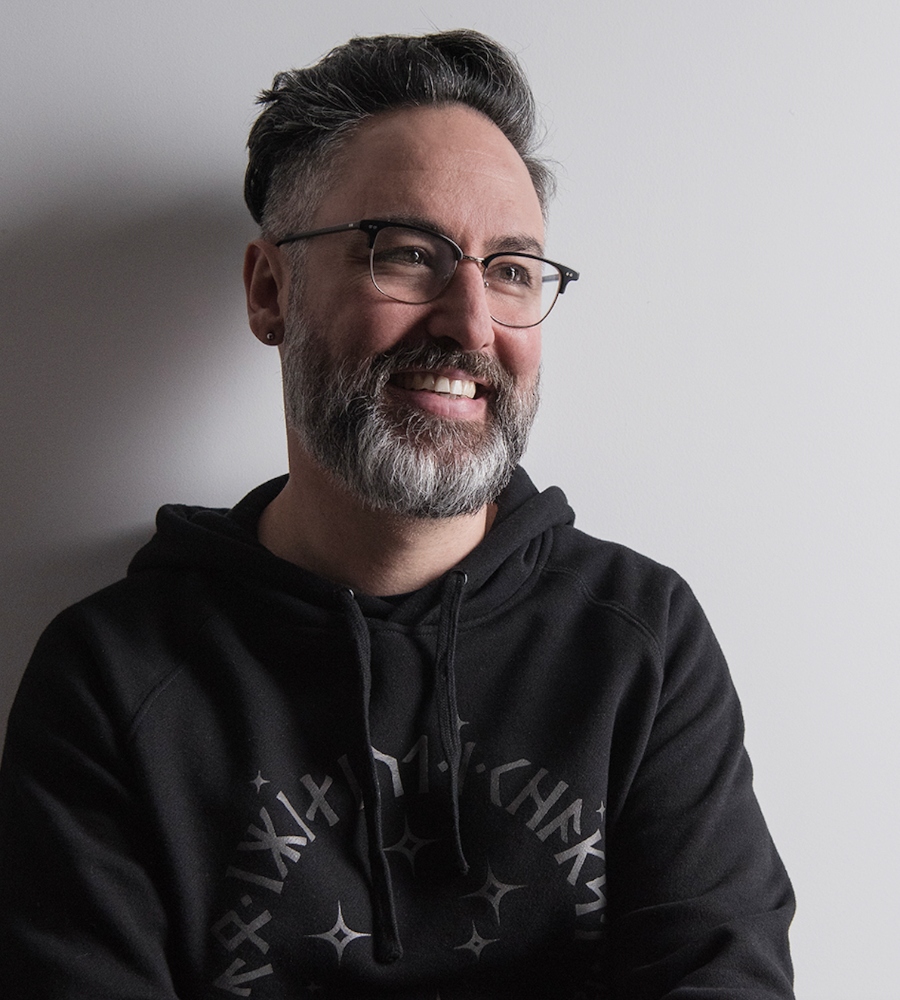
Below the Line: Why did you decide to work in sound for film and television, and how did you get into the business?
Damian Del Borrello: I was always into music. When I was in high school, I was a drama and music nerd. I was always in bands from when I was 16, pretty much until I was about 26. I was going to uni, but also in bands. I’m originally from Perth, which is a city on the other side of the world. It’s one of the most isolated capital cities in the world, and there wasn’t really a big music or film industry there. So, when I was younger, the path to a creative career was not very clear. I spent a lot of time at university, but then over years, through my early 20s, I started realizing there was this other side to the creative performance, and it was post-production.
I went to get a media degree and started to learn a bit more about general media/TV. I had to make a decision around, “Okay, do I go to film school, or do I go to music school and get classical training?” At that time, the music industry was imploding. Napster had become the dominant form of how you got music. So, I put my adult hat on and said, “Maybe I should go to film school.” I moved to Sydney, started that path, and haven’t looked back. Music was the gateway, and film school was the stepping stone to entering the industry proper.
BTL: You’ve served as a Sound Recording Mixer, Sound Editor, Music Mixer, Sound Designer, Foley Artist, ADR Editor, Sound Effects Editor, and Supervising Sound Editor. What have you learned along each step of the way that you then took with you to the next level?
Del Borrello: My IMDb looks more like a list of possible jobs in the industry as a sound professional than anything, and, in part, that’s by design. One of my goals was to learn all the different aspects of what we do so that I could get to the point where I could confidently supervise a show of any size. The other part of it is, entering the industry in Australia and continuing the trajectory into New Zealand, they’re quite small industries. The flip side is, you have to do a little bit of everything to make a career.
The size of the industries over here has the benefit and the downside where it’s so small that you sometimes are scraping to put together a career, but you get exposed to lots of different sides that maybe someone in L.A. wouldn’t. You look at a lot of people who are mixers; they start as mix techs, and then they’re mixers for their whole careers. My trajectory benefited my skill set, so I have a broad base that I can now draw upon to supervise a show like Lord of the Rings.
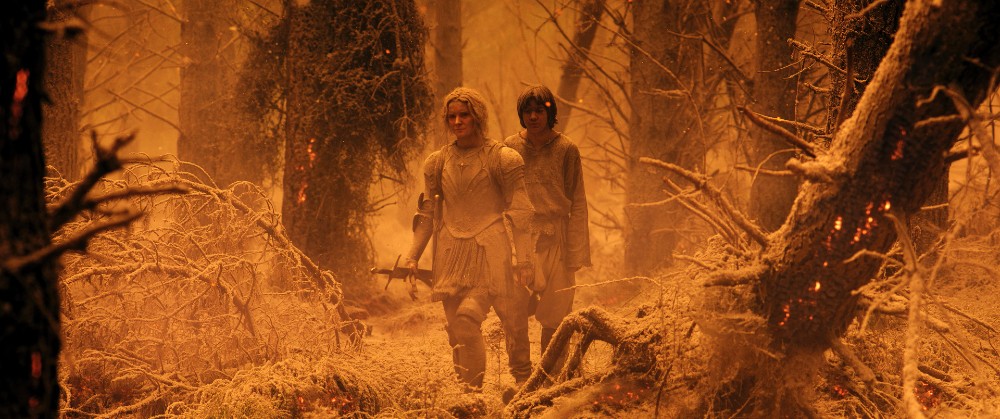
BTL: Speaking of Lord of the Rings, how familiar were you with Tolkien’s story and Peter Jackson’s trilogy?
Del Borrello: The original films were, in part, a big help for me in deciding to go down this path. They were such a big influence on cinema and [the way] cinema sounds, that [they] drove me to pursue this path. Actually, it’s why I’m in Wellington at the moment; I worked for that company for a few years before I ended up on the show. Those original films were quite important to me, certainly, for this show; [they] made you want to start going down that path.
One of the big things that were important to me was honoring the legacy and paying homage to those films, because they were so good. To not reference them and not use them as a stepping stone to create this show would have been a bit silly. Because I also know a lot of people that worked on those films, [so] it was important for me to respect that legacy.
BTL: How did you get the job in the first place?
Del Borrello: My supervising partner, Robby Stambler, actually got the job from his relationship with the main producer. When they realized they were coming to New Zealand, I got a call from a personal advisor friend of mine who recommended me. That was the week before Christmas in 2019. By the second week of January, I’d gotten the job and I started at the beginning of February. It’s a lot about who you know, and the timing. I was finishing a show at another facility down here in Wellington around that same time, and it worked well with my schedule. I’m very glad it did.
BTL: You worked on this show from February 2020 until June 2022. When you came on board, how aware were you that this project would span two and a half years for just one season?
Del Borrello: I definitely did not realize [that]. This was pre-COVID. The original plan was to do Episodes 1 and 2 for a six-month period, and then take a bit of a hiatus and pick it back up to do the rest. Robby and I would be embedded with the picture editorial departments for a long period of time, feeding our pre-dubs to them so that the sound design elements would live with the cut and then carry through to the final mix. We had seven weeks, and then COVID, the first wave, hit. That whole plan had to be reassessed.
I was on for two years and five months, but there was about a four-month break after that first wave hit where we were uncertain as to what was going to happen. The producers were still figuring out how to push forward with shooting. Picture editorial kept cutting, but we were doing bits and pieces — a week here, a week there, for about four months, without any real indication of how it was going to happen moving forward. In total, if you look at the weeks and the months that we spent, it was more like a little over two years solid.
One thing to keep in mind is we were thinking about it in terms of, “These eight episodes were like four massive feature films.” If you think about that as a timeline, it’s actually not a lot of time. Two years for four feature films, which are Lord of the Rings. The original films were a good year in post-production. If you compare it in that sense, we did a pretty good job in that time.

BTL: What did you see as your mission statement on this job?
Del Borrello: Mission statement… that’s a good way of putting it. For me personally, it was to honor and elevate the sound of Tolkien. To honor the legacy but bring a fresh perspective, that’s probably a better way of putting it.
BTL: The show is set well before the events of Jackson’s films. We see worlds that we haven’t seen before. How freeing was that element — paying respect to the Jackson films, as you noted, while building out this massive new version of the Tolkien landscape?
Del Borrello: A lot of this was driven by the showrunners. They wanted to put their own spin on things, and I guess that those original films still stand up in a pretty big way. One of the things I did was watch the films before I started. Apart from a couple of VFX bits here and there, they’re still solid-looking and sounding films, technically, and creatively. One of the big things on the sound side of things that make those films so special is the aesthetic of them being described in a documentary style; there’s an ultra-realistic sound. All of the sounds are organic. They sound like they are of our world, and not necessarily the modern world. That was a starting point for us. If we could get to that point and then bring something a little more modern [and] detailed, with a little bit more fidelity because we’re talking about 20 years, and technology has changed so much in that time.
One of the big things is the Dolby Atmos format and being able to present this with all of that dynamic range. The quality that format affords us was huge. We were always thinking about how we were going to be using our sound effects and how things were going to be placed in this space, all that stuff. We got there. A big part of the process, obviously, is the recording and mixing. We had the amazing Beau Borders as our Sound Effects Mixer. He brought a whole range of techniques and workflows that he’s used on films in the past, and just brought that cinematic aesthetic, getting back to that idea of what we were making [was] not actually a TV show.
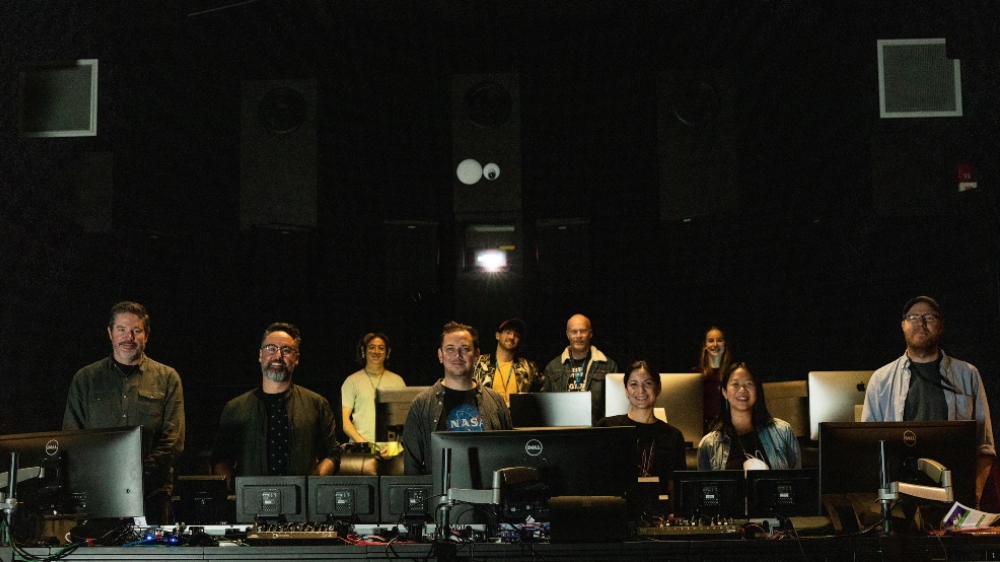
BTL: Tell me about collaborating with a dialect coach and including a Quenyan incantation — a constructed language, as devised by J.R.R. Tolkien for the Elves — to create the “whispers of Eru Ilúvatar,” which was the central sound motif for all things magic in The Rings of Power.
Del Borrello: I’m a nerd. I’m quite a conceptual person, and analytical, so one of the things that I started doing very early on was, I just looked up the Tolkien Gateway on Wikipedia. That became a bit of an encyclopedia for me. Whenever new things came up, I’d dive in there and get a bit of background. This goes back to trying to respect the lore. Apart from the original films, the fans are a big part of the whole process as well, so I’m just making sure that we were on the right track the whole time.
One of the things that were quite obvious from the start was all these magic elements, some of the early sequences where we’re getting to know who these giants were, and magical scenes with The Stranger. The question is, ‘What is the unseen world and what does magic sound like without the Ring?’ We don’t have the One Ring yet. In the original film, it was the sound of Sauron, and in the eye of Sauron talking through the ring. It was a lot about the voice, and the magical ambiance around that, but without the voice. What does that sound like? I went on a deep dive down into the source. What is the source of magic without the Ring?
I came to this logical conclusion that it was the creator, Illuvatar. Everything was created in the mind of Illuvatar. So, what do the thoughts of Illuvatar sound like, practically, right? It must be an incantation, and it must be whispers. We had this fantastic dialect coach who was working with the production and with all the actors. She was also in and out of ADR sessions with us. I didn’t do a lot of ADR sessions. We just did a handful, but I reached out to her with a transcript that I had done of a piece of production sound, and we’re like, ‘What does this mean? What is this? Can I use these words in this way?’ It was, fortuitously enough, perfect. It was, “I called to you, to work for me, to hear my needs, to guide my hands,” which was a perfect little incantation.
This was in the very early stages. This was back in February 2020. I just jumped in a booth, recorded myself with a high-resolution mic at 96 kilohertz, performing these whispers in a whole range of styles — long, slow, and gentle, all the way up to quite strong, angry, short, and sharp — and then did a whole lot of processing. The intention was actually for me to demo it up and start to put it into the sequences and the scenes; to just try and figure it out, workshop it with the editors, and present it to the showrunners, to then later — when we’re in proper post-production — have a voice actor come in and actually perform it. Redo it in a way that, maybe, was better.
But it all worked so well that it’s actually me as the whispers. It is an element that becomes a motif across the show. It’s just one element because magic always has an effect on the world, and there are a whole lot of heavier elements around it, like ripping trees, and the sound of the energy waves. It’s not a featured element, but it’s a thing that ties together all of the different times that the magic happens, so we could get away with that.
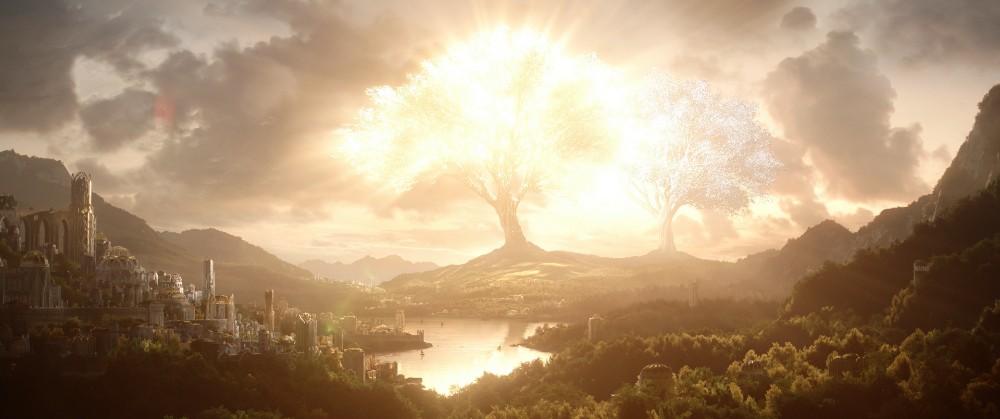
BTL: IMDb lists 34 people credited as working on the show’s sound, and I’m sure there were more who probably weren’t credited. How much bigger than anything else that you had ever done was this? And on top of that, you had New Zealand and American sound crews. How did you go about collaborating with and supervising such a large team?
Del Borrello: It was complicated. We were lucky we also had a fantastic post-production team. So, the reason why that number is so big is because of all the ADR recorders. The post team and post supervisor were quite keen to get as much ADR done before the actors left, but there was so much to develop after the shoot finished that it was a natural thing that there was going to be ADR all over the world. That’s the case on any international show, big or small. Once the shoot is done, the actors are off and onto another show, so the ADR will happen wherever they are. That’s probably the thing that would double the crew list.
For a long time, it was just Robby and [me]. For about a year, it was just Robby and I developing the sound design of the world-building and helping to fill out things for the future editorial departments. We did have an ADR supervisor who was on in bits and pieces to help the post team manage the recording, but then it wasn’t until about five months into the mix [that] we started to expand the team. That was a pretty even split between New Zealand and the U.S. There was a natural delineation there. Robby was looking after all the people who were in his time zone, and I was helping all the people in our time zone.
The thing to keep in mind on the New Zealand side is, we were in lockdown for big parts of that period. Even though we’re all in New Zealand, we were still quite separate. There were people up the coast and even in Wellington. There were people in the suburbs just over there that I couldn’t go and see in person. Everything was remote because of COVID. That kept going until about November of 2021, which was when we all went up to Auckland.
Beau and Lindsey [Alvarez], our mixers, and Robby flew over. We started the mix properly in December, and Auckland had just come out of lockdown. We were all trying to manage the stress around doing this in a different way. The COVID compliance team kept us safe. The team was COVID-free for the entire duration of the mix, which was crazy good because we were lucky we weren’t hit with it. It would have blown out the schedule, especially with our mixers and especially with Robby, who had to leave the country after a certain period of time.
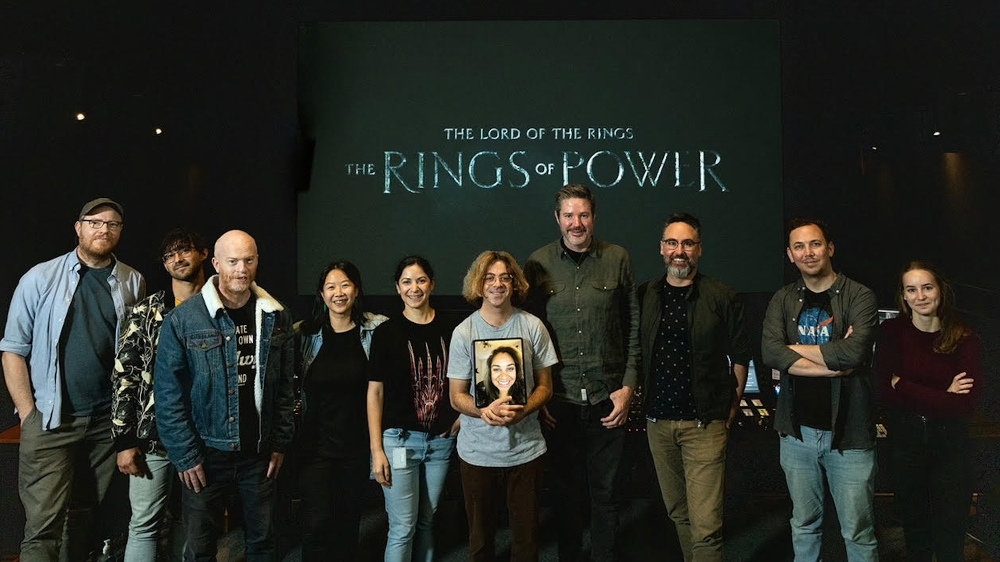
BTL: What’s next for you? Are you already working on Season 2?
Del Borrello: I’m about to start on the new Taika Waititi series, Time Bandits, which has started shooting. With Season 2, I only know what is publicly known at the moment. They’ve just started shooting, that’s all I know, and it’s happening over in the UK. Your guess is as good as mine at the moment, but for me, I’m really busy with that show [Time Bandits]. That will be me for the next year.
BTL: Can you sit back and enjoy The Power of the Rings, or are you too busy listening to it?
Del Borrello: I will sit back, listen hard, and enjoy it. I love pulling apart or analyzing soundtracks. It brings me so much more appreciation of the show. On a side note, the two-track, having mixed it with Dolby Atmos, is incredible. Because I didn’t spend a lot of time listening to the two-track while we were working on it, it’s like a new way of watching the show.
Season 1 of The Lord of the Rings: The Power of the Rings is streaming now on Prime Video. Click here for our interview with VFX Supervisor Jason Smith and click here for our interview with Production Designer Ramsey Avery.




